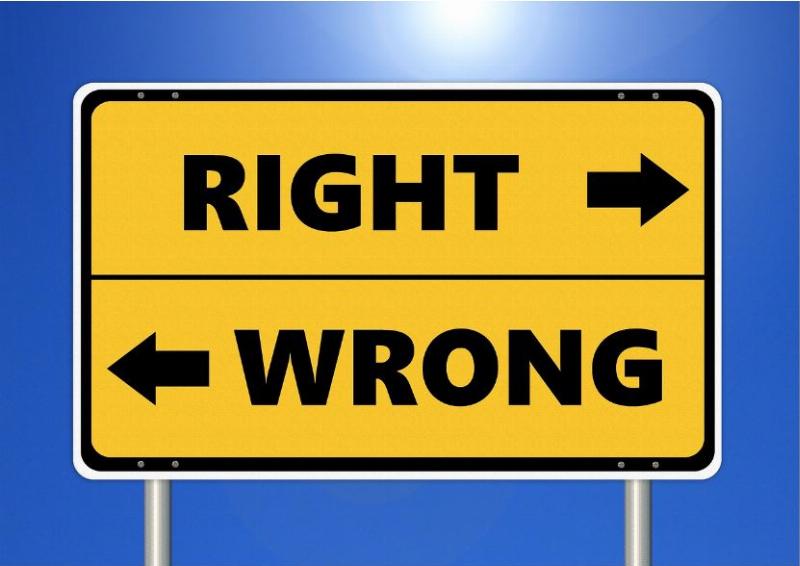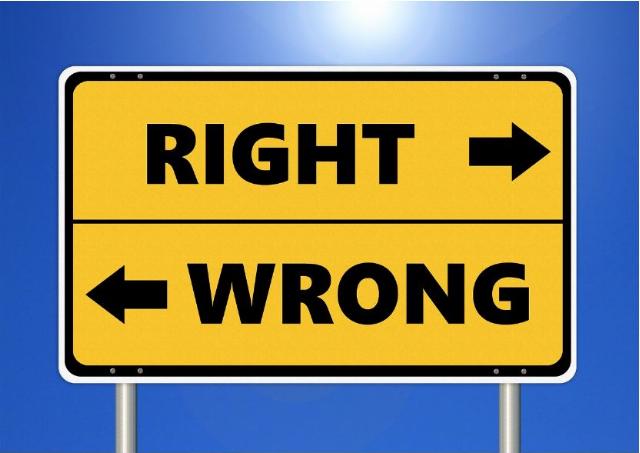


I recall watching New Jersey governor Jim McGreevey’s resignation speech in 2004, prompted by a scandal involving sexual impropriety. During his address, he declared, “And so my truth is that I am a gay American.” The phrase “my truth” struck me as jarring. It was the first time I’d ever heard it, and it seemed like a convenient way to sidestep accountability. McGreevey didn’t step down because he was gay. He did so because his behavior was egregious.
People use the expression “my truth” to convey personal perspective or subjective experience, but upon closer examination, it raises logical concerns. By definition, truth is typically understood as a statement or belief aligned with objective reality. When someone claims “my truth,” he suggests a personalized version of truth that may diverge from this objective standard, prioritizing subjective belief over verifiable fact.
If truth is relative to each individual, then every person’s “truth” becomes equally valid, creating challenges in resolving conflicting claims. For instance, if two individuals’ “truths” contradict each other, there is no logical framework to determine which is correct. This leads to a paradox where contradictory statements are both deemed true. While personal experiences are valid, equating them with truth blurs the distinction between subjective interpretation and factual accuracy.
The concept of “my truth” aligns closely with moral relativism, the belief that moral truths or ethical standards vary by individual, culture, or context. Both reject universal standards, leading to logical inconsistencies. If all “truths” or moral codes are equally valid, there is no basis for judging or resolving conflicts when one person’s “truth” or morality contradicts another’s. For example, if one person’s “truth” deems lying to advance one’s position as morally correct whereas another views it as wrong, relativism provides no mechanism to evaluate which stance is preferable. This mirrors the paradox of “my truth,” where conflicting personal truths cannot coexist without undermining the very concept of truth.
Both “my truth” and moral relativism can erode accountability. Actions like cheating or stealing could be justified as “true” for an individual if moral standards are tied to personal truths. This risks excusing harmful behavior because it aligns with someone’s subjective framework. A stark example occurred in Washington State, where a couple nearly killed their 17-year-old daughter for refusing an arranged marriage in Iraq. The girl, defying her father’s wishes, returned to school and sought refuge. School officials entrusted her to her boyfriend, instructing him to “keep her safe.” As they left the school, her father punched the boyfriend and began choking his daughter. Students and a passerby intervened, and the parents were charged with serious crimes, including second-degree attempted murder and first-degree attempted kidnapping. The New York Post reported that the father had threatened his daughter with an “honor killing” for refusing the arranged marriage.
An estimated 23–27 “honor killings” occur annually in the United States, yet critics argue that attributing religious motivations to crimes committed by Muslims insults Islam. A U.S. Department of Justice study identified four types of honor violence: forced marriage, honor-based domestic violence, honor killing, and female genital mutilation. The report noted that 91 percent of victims in North America are murdered for being “too Westernized,” with fathers almost always involved in cases targeting daughters 18 or younger. For every honor killing, countless more instances of physical and emotional abuse occur, often justified by fundamentalist interpretations of Islam. In such cases, the perpetrators believe their actions are morally right, whereas others view them as abhorrent.
Citizens of the United Kingdom and Western Europe are also discovering, to their horror, that all cultures are indeed not the same, and that welcoming vast numbers of unassimilated immigrants into their society can lead to catastrophic outcomes.
Moral and cultural relativism offer no guidance in resolving these conflicts, leaving us without a framework to determine which perspective is correct. Common sense would dictate that killing your daughter to protect your family’s honor or participating in a rape gang is uncivilized, yet these actions are permitted in some circles and circumstances.
The phrase “my truth” and moral relativism both face logical inconsistencies. Claiming there are no absolute truths or that all morality is relative creates a self-referential paradox, as such assertions are often presented as absolute truths themselves. Similarly, asserting “my truth” as valid implies an objective standard for validating personal truths, contradicting the relativistic premise.
In conclusion, “my truth” and moral relativism prioritize subjective perspectives over universal standards. However, both fail to resolve contradictions, undermine objective evaluation, and risk paradoxical or self-defeating claims when applied consistently. By blurring the line between personal belief and objective reality, they challenge our ability to address conflicts and maintain accountability.
To paraphrase the late, great Oliver Hardy, this is another fine mess the left has gotten us into.

Image via Pixabay.
